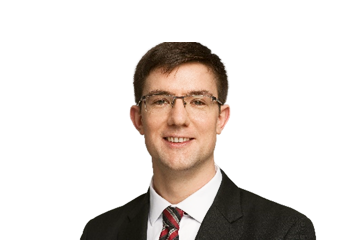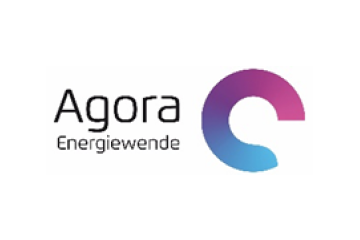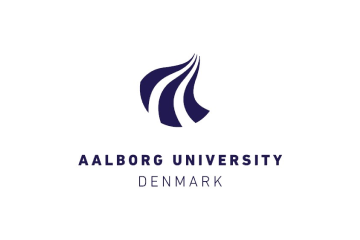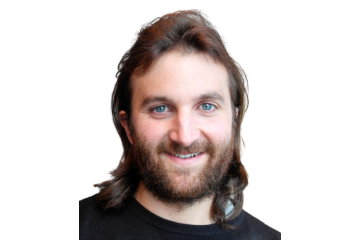
Webinar on Building a ‘first fuel’ pipeline to regain Europe’s energy sovereignty
Date: 28.04.2022
Time: 9:00 – 10:00 am
Organized by: sEEnergies, Agora Energiewende and Aalborg University
As a response to the European Commission’s 2050 decarbonization goals, sEEnergies uniquely considers all aspects of the Energy Efficiency (EE) First Principle. By applying it in sectors and markets, country-by-country and grid-by-grid, and by combining temporal and spatial analyses, sEEnergies will develop an innovative, holistic and research-based EE-modelling approach.
The aim of sEEnergies is to quantify and operationalize the potential for energy efficiency in buildings, transport, and industry. The project goes beyond state-of-the-art science-based knowledge and methods, as it combines sectorial bottom-up knowledge with hour-by-hour modeling of the energy systems and spatial analysis in the EU. Web: www.seenergies.eu Twitter: @sEEnergiesEU
In this webinar we will present an investment strategy roadmap based on an sEEnergies evaluation of the most critical energy efficiency improvements. This roadmap is complemented with knowledge from the existing best practices worldwide where energy efficiency measures are prioritised over supply-side investments.
We will also present key findings from a recent Agora Energiewende study developed together with Artelys, TEP Energy and Wuppertal Institute estimating the potential to reduce consumption of natural gas in Europe by accelerating the deployment of renewables and energy efficiency. A key focus of the presentation will be on the potential for energy savings at the sectoral and energy system level and the recommended priority action areas to help deliver them
Presented by
Agenda
09:00 – 09:15
Lessons from sEEnergies for REPowerEU
David MAYA-Drysdale and
Brian Vad Mathiesen (Aalborg University)
09:15 – 09:30
The role of energy efficiency in the EU’s quest to regain energy sovereignty
Andreas GRaf (Agora Energiewende)
09:30 – 10:00
Discussion and feedback from stakeholders
Andreas Graf is a Senior Associate for EU Energy Policy at Agora Energiewende. In this role he helps to develop evidence-based and politically viable strategies to advance the goal of climate neutrality, with a particular focus on Europe and the building sector. Before joining Agora Energiewende, Andreas worked as a Researcher at the environmental policy think-tank Ecologic Institute in Berlin, the European Commission’s Directorate-General for Energy and the German Bundestag. Andreas Graf studied political science, environmental studies, and Germanic languages & literatures in Germany, the US, Japan, and India.
David Maya-Drysdale is an Assistant Professor in the Sustainable Energy Planning Research Group at Aalborg University. He works with Energy System Analysis focusing on 100% renewable energy system planning in European countries. This involves methodology development and data collection, analysis and reporting. His PhD focus was on local low carbon energy planning, researching the pathways in which European cities can transition their energy systems to low carbon. This involves understanding the technical scenarios as well as the urban planning elements in the short- and long-term. In addition, he has a background in Life Cycle Assessment where he has been involved in company projects and developing methodologies following ISO standards 14040 and 14044.
Brian Vad Mathiesen, Professor in Energy Planning and Renewable Energy Systems at Aalborg University, holds a PhD in fuel cells and electrolysers in future energy systems (2008). His research focuses on technological and socio-economic transitions to renewables, energy storage, large-scale renewable energy integration and the design of 100% renewable energy systems.
He is one of the leading researchers behind the concepts of Smart Energy Systems and electrofuels. He is on the Clarivate, Web of Science Highly Cited list (2015-2020), thus among the top 1% most cited researchers globally. Among other positions, he is member of the EU Commission expert group on electricity interconnection targets in the EU and The newly founded Science Advice for Policy by European Academies (SAPEA) Expert Group on A Systemic Approach For the Energy Transition In Europe. He is the Research Coordinator of the Sustainable Energy Planning Research group, Principal Investigator (PI) of the RE-INVEST and sEEnergies projects, and Programme Director for the MSc in Sustainable Cities.
He has been PI, work package leader and participant in more than 60 research projects as well as editorial board member of The Journal of Energy Storage (Elsevier) and The Journal of Sustainable Development of Energy, Water & Environment Systems; Associate Editor of Energy, Ecology and Environment (Springer) and Editor of the International Journal of Sustainable Energy Planning and Management. Recently he started the new Elsevier Journal Smart Energy. Furthermore, he is a member of The Danish Academy of Technical Sciences (ATV) and a board member at The Danish Energy Technology Development and Demonstration Program (EUDP).Furthermore, he is a member of The Danish Academy of Technical Sciences (ATV) and a board member at The Danish Energy Technology Development and Demonstration Program (EUDP).






